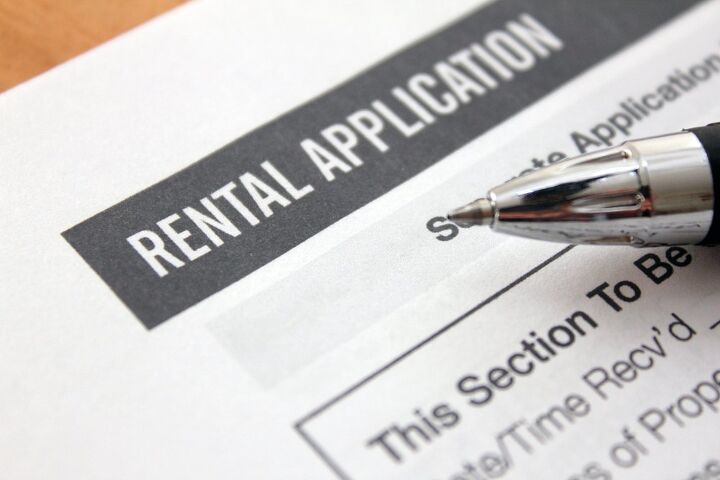Can A Condo Board Reject A Renter? (Find Out Now!)

In places like New York City and San Francisco, people who own condos often make a killing by renting it out. This is true for both short-term and long-term rentals. However, if you are in a condo, things always have to pass muster with the HOA. Can your condo board retain the right to reject a renter?
Condo boards have the right to reject renters in many cities, provided that they have a decent reason to. However, they rarely do. A more common way that condo boards exercise their decisions is to restrict the right to rent their buildings altogether.
If you want to rent out the condo unit that you own, it’s important to understand what condos can and cannot do. Before you put up an ad on Craigslist or contact your realtor, it’s time to learn what you should do.
Do You Need to Hire Movers?
Get free, zero-commitment quotes from pro contractors near you.

Are Condo Boards Allowed To Reject A Renter?
This all depends on what state you live in as well as the overall rules that your condo board has. On a national level, condos have the right to deny buyers the right to rent to anyone. This is primarily because of three reasons:
- The risk of having a bad renter could mean disaster for the condo’s actual building. This is a major concern, especially if the condo building is prone to pests or has thin walls.
- Many condo boards want to keep people living there. If you rent out the area, there will be moments that require you to stay out of the condo or unit. This doesn’t look good for HOAs or condo boards. So, they may bar people entry.
- There’s also the concern involving the damage done to the condo’s reputation. I’m not going to say all renters are going to be a bad look, but some can make upscale condos look really bad.
How Can A Condo Board Reject A Renter?
So, there are several ways that condos are allowed to reject a renter. There are several that are particularly common…
Right Of First Refusal
This is a clause found in a condo buying contract that says that the condo board has the right to refuse a specific renter or buyer picked out by the owner of the condo unit. Most condo communities will have a right of refusal clause added into their contracts for this reason. Here’s how it works:
- The condo owner is allowed to bring a packet showing a potentially good renter that they want to lease their unit to.
- The board looks over it and makes a decision.
- If they waive their right, all is well. If the owner’s renter is refused, then the condo board can offer to find a suitable renter for the owner.
In most cases, you need to have a 2/3 vote from the board to exercise this right. Moreover, the condo board has to have a good reason as to why they don’t want this individual in their community. Owners, of course, can bring the board to court if they believe there is discrimination afoot.
Rental Restrictions
Another major way that they can reject a renter is to have a clause that limits rentals to a specific timeframe or a specific situation. In some cases, the clause can ban renters of any type simply because it’s an easier way to deal with renters and keep property values up.
It’s important to note that some rental restrictions can be enacted retroactively. So, that’s important to check with your contract and board.
Specific HOA/Board By-Laws
In some cases, condos aren’t just condos. They can act as a very specialized type of housing for people who have a specific industry or inclination. If this is the case, then your condo might be a blend between a condo and a co-op. This often means that any resident has to be personally vetted and approved by a board.
If this is the case, even long-term guests might be off limits. This is not always a legal clause to have, so check with a real estate lawyer if you spot it in your contract.
Why Would A Condo Board Reject A Renter That You Have?
Condo boards might reject a renter for a multitude of reasons. However, they almost always boil down to keeping property values intact and keeping people who might endanger others out. The most common reasons boards may reject renters include:
- Financials. If the renter in question wants to rent your home for $1,000 and they make $1,200 a month, then it’s a clear no-go. The condo board will reject them because they don’t want YOU to have to deal with the eviction process.
- Criminal Backgrounds. If a person has felonies or even multiple misdemeanors, it could signal that they could be a nuisance renter. In some cases, such as sex offenders, charges also denote a serious danger to people in the building.
- Past Evictions. Like with regular apartments, condos can reject renters based on past evictions. This is a sign that your renter won’t hold up their end of the deal.
- Bad Landlord Reviews. Often this means that the potential renter is a nuisance, or that you may have a difficult time getting them out of the condo. It’s a red flag, so it could be reason enough.
Are Condos Legally Allowed To Reject Renters?
It depends on the verbiage in your condo contract, but generally, the answer is yes. Legally, they have the right to do so as long as it isn’t because of a discriminatory reason such as race, religion, gender, or creed. If you feel that they rejected for a specific reason that is considered discriminatory, then you have a reason to bring it to the courts.
Can Condo Boards Ask You To Evict Renters?
Yes and no. Condo boards cannot legally force a landlord to evict renters in most situations. However, anything that your renter does that would get you penalized will most likely get you penalized instead. As a result, it’s usually best to avoid renting your apartment out unless you do serious vetting.
In very extreme situations, a condo board can actually evict a renter on your behalf. This includes moments where people feel like their lives are at risk.
How Can You Find Out Your Rights As A Condo Owner Who Wants To Lease Their Property?
There are two main things you should do. The very first thing that you should do is look at your condo owner’s booklet. The condo contract booklet will give you a basic run-through of what you can and cannot do, what the terms of condo leasing are, and if it is even possible to lease your condo. Most of your questions should be answered there.
Of course, there is always the chance that you might have a condo board that leaves things vague or oversteps their bounds. If you are unsure of what your rights are, it’s best to ask the board for clarification. Should things appear to be too intrusive, asking a real estate lawyer is a smart idea.
Is It A Good Idea To Rent Out A Condo?
It can be, but there are catches to the outcome. If you have a condo that you want to lease, you need to make sure that you have the right renter. Moreover, you want to make sure that your condo association won’t hate you for choosing to rent out your unit.
It’s important to remember that letting someone live at your property is a huge risk. Most people don’t even realize how bad of a risk it can be. Unless you are certain that you can trust the renters you get and know that the HOA that runs your condo is amenable to renters, it’s best to try to find another way to make money.
Do You Need to Hire Movers?
Get free, zero-commitment quotes from pro contractors near you.

Related Questions
Can condo associations reject a buyer?
Absolutely. Condos are private groups that are meant to be businesses. As long as the reason for rejection is not discriminatory against a protected group of people, condo associations have the right to reject a buyer. In most cases, rejections happen as a result of the financial standings of the potential buyers as well as the offering price.
How do you complain about condo management?
The best thing to do is to ask for an appointment with your condo manager and check to see what kind of conflict resolution process they have in place. Explain the issue with the condo manager (or board) in as polite and succinct a way as possible. In most cases, management will be amenable to working with you.
Can I sue a condo management group if I feel they aren’t performing their jobs?
There are several reasons why you may need to sue your condo management. Matters of leaving the condo in disrepair, negligence, or even discrimination can be a good reason. In most cases, the charges that you bring against the management will have to be reviewed by a lawyer in order for them to actually get brought into court.

Ossiana Tepfenhart is an expert writer, focusing on interior design and general home tips. Writing is her life, and it's what she does best. Her interests include art and real estate investments.
More by Ossiana Tepfenhart















![Standard Dining Room Table Dimensions [for 4, 6, 8, 10 and 12 People]](https://cdn-fastly.upgradedhome.com/media/2023/07/31/9074335/standard-dining-room-table-dimensions-for-4-6-8-10-and-12-people.jpg?size=350x220)





![Cost To Drill A Well [Pricing Per Foot & Cost By State]](https://cdn-fastly.upgradedhome.com/media/2023/07/31/9074980/cost-to-drill-a-well-pricing-per-foot-cost-by-state.jpg?size=350x220)




![How To Reset A Whirlpool Cabrio Washer [In 5 Easy Steps!]](https://cdn-fastly.upgradedhome.com/media/2023/07/31/9076531/how-to-reset-a-whirlpool-cabrio-washer-in-5-easy-steps.jpg?size=350x220)
